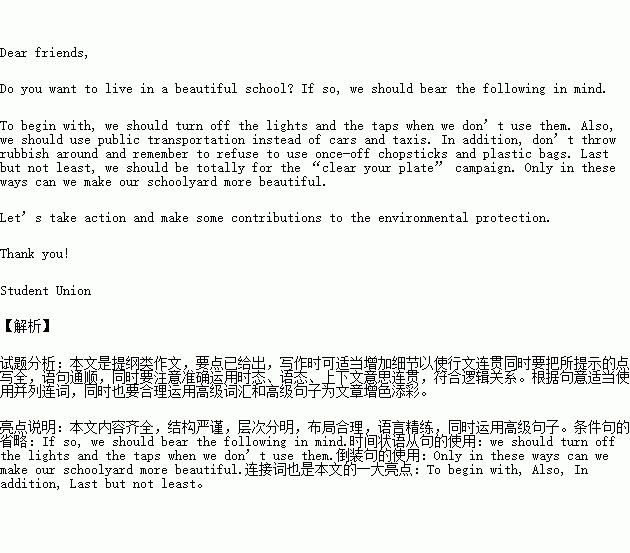题目内容
为了使我们的校园更美好。作为学生会主席的你,向全校学生倡议要形成环保意识,让同学们明白保护环境是我们中学生应尽的责任。请根据下面内容写一份倡议书,要点如下:
1. 节电、节水;
2. 采用公共交通方式;
3. 不乱扔垃圾,拒绝使用一次性筷子及塑料袋,支持“光盘行动”。
注意:
1. 次数100左右;
2. 可以适当增加细节,以使行文连贯;
3. 开头和结尾已经给出,不计入总词数。
参考词汇:一次性筷子once-off chopsticks ; 光盘行动 “clear your plate” campaign
Dear friends,
_______________________________________________________________________________
_______________________________________________________________________________
_______________________________________________________________________________
_______________________________________________________________________________
_______________________________________________________________________________
_______________________________________________________________________________
_______________________________________________________________________________
_______________________________________________________________________________
_______________________________________________________________________________
_______________________________________________________________________________
_______________________________________________________________________________
Thank you!
Student Union
 名校课堂系列答案
名校课堂系列答案
